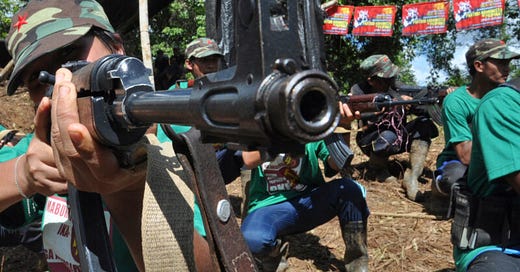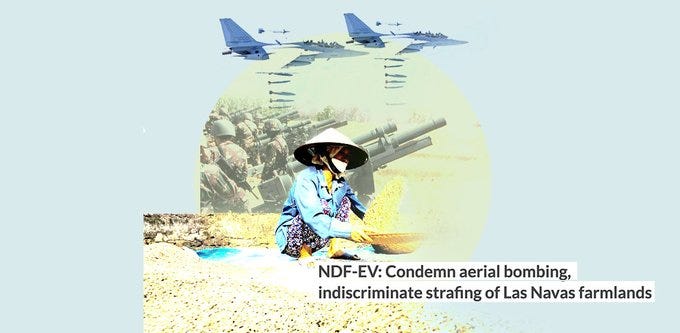The Communist Guerrillas of the Philippines See US-China Escalation in AUKUS, Denounce Manila’s Acquisition of American Black Hawk Helicopters and ScanEagle Drones
The urgent concern voiced by the Philippines’ red fighters about the spectre of an intensifying US-China security competition in the region is well captured by the proverb “when elephants fight, it is the grass that suffers.” The outlawed Communist Party of the Philippines-New People’s Army (CPP-NPA) insurgent forces are avowed Maoist internationalists, however, they are also hardliners when it comes to matters of national sovereignty and self-determination. This fundamental impulse animates their drive to resist foreign interference by the great powers in Philippine domestic affairs.
The communist guerrillas, given their location, function as a kind of geopolitical weathervane in detecting the momentum of US-China strategic competition in the Indo-Pacific. The insurgents are highly vocal in their opposition to the “imperialism” of the United States and China, and it is worth noting that the group has killed American service personnel in the past and has explicitly threatened attacks against Chinese nationals and interests.
The shock announcement of the Australia–UK–US (AUKUS) agreement elicited an emotive reaction from the insurgent network, with Marco Valbuena, the chief information officer of the CPP, describing it as the latest escalation in the “rising aggressive policy of the United States in the Asia-Pacific.” AUKUS, he warns, “is certain to turn the region into a playground of imperialist bullies” and adds “the sovereignty of countries in the region are bound to be trampled upon by the US and its allied military forces.”
Valbuena argues the move “will surely heighten a costly arms race between the imperialist countries to the detriment of the people,” urging that “the Philippines must continue to assert its national sovereignty against both Chinese and US imperialist military intervention.” Interestingly, the CPP sees an opportunity to leverage the fast-developing multipolarity in that the “Filipino people must take advantage of inter-imperialist conflicts to assert Philippine sovereignty and oppose subordinating or surrendering any part of the country to either imperialist power.” Valbuena says the populace must “firmly resist the build-up of Chinese military presence in the West Philippine Sea” and, likewise, “expose and reject plans to expand the construction of US military facilities” in the country.
Jose Maria Sison, the writer and activist who founded the CPP, recently addressed Chinese encroachment in a statement criticizing Philippine President Duterte as “increasingly beset by complaints of retired and active officers of the reactionary armed forces who are outraged by his traitorous sell out to China of Philippine sovereign and maritime rights in the West Philippine Sea.”
The CPP issued a subsequent statement condemning the US for providing the Philippine government with five Black Hawk helicopters and four ScanEagle UAVs. Valbuena claims the equipment supplied to defend against “threats of Chinese military incursions in the South China Sea” is instead more likely to be used against communist militants in the countryside. “These weapons are being employed in the increasingly brutal war of terror … marked by heightening aerial bombardment, shelling, and strafing,” the group alleges.
Visual Citations: Images sourced from official CPP media outlets






